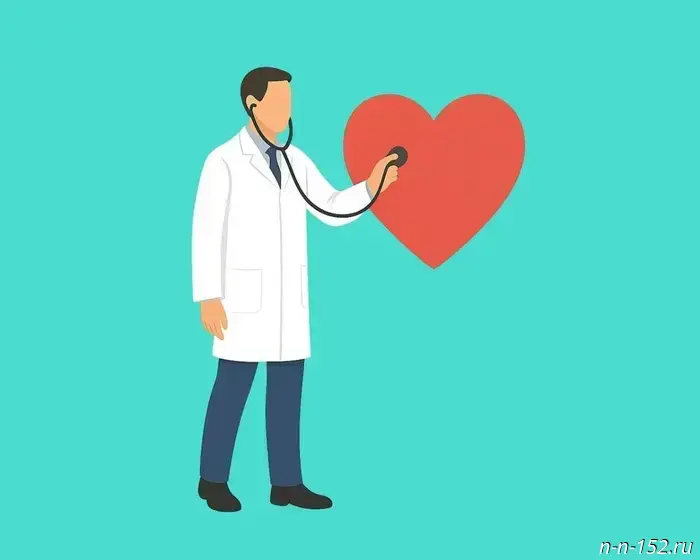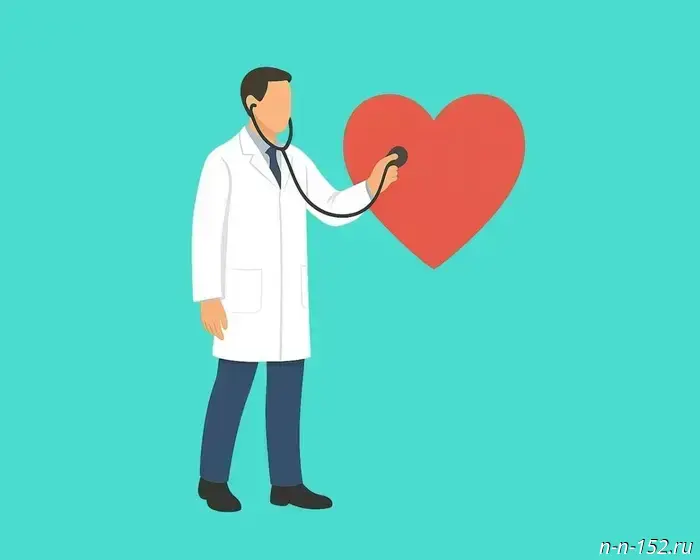
How to reduce the risk of heart attack and stroke: advice from a Nizhny Novgorod cardiologist
September 29, 2025 11:00 Society
September 29 is observed worldwide as World Heart Day — a date intended to remind people of the value of the body’s main organ. The campaign was first held in 1999 at the initiative of the World Heart Federation and with the support of WHO and UNESCO. Today it brings together dozens of countries, and the main goal remains unchanged — to draw attention to the prevention of cardiovascular diseases.
Why the heart needs special attention and how to protect it from disease was explained by Elena Timoshchenko, the chief freelance cardiologist of the Ministry of Health of the Nizhny Novgorod Region.
Why the heart is important
The heart is not just a muscle, but a powerful “motor” that continuously pumps blood and lymph, supplying organs with oxygen and nutrients. The functioning of the whole body depends directly on its condition.
Cardiovascular diseases (CVDs) are a whole group of pathologies. They include hypertension, ischemic heart disease, strokes, cerebrovascular diseases, heart defects, cardiomyopathies, thromboses and embolisms. The danger is that often a heart attack or stroke becomes the first manifestation of a disease that developed unnoticed.
Who is at risk
The risk is especially high in people with elevated blood pressure, high blood sugar and cholesterol levels, as well as with a hereditary predisposition. Kidney health also plays an important role.
Prevention begins in childhood
According to Elena Timoshchenko, caring for the heart should begin in childhood: proper nutrition, giving up smoking, and physical activity. Adults should not relax either, since the risk increases with age, so regular examinations and medical screenings are necessary.
Prevention can be non-pharmacological and pharmacological. The first involves forming healthy habits: balanced nutrition, physical activity, and quitting smoking. The second involves taking medications if blood pressure, blood sugar or cholesterol cannot be controlled by other means.
Nutrition — the foundation of vascular health
Diet is of great importance. It should include plenty of vegetables and fruits (at least 400 grams per day), legumes, grains, lean meat and fish. Fatty meats, sausages, fried potatoes and trans fats should be limited. Nuts and apples are beneficial. For example, just one apple a day helps keep cholesterol normal.
It is important to reduce salt intake. Excess salt leads to fluid retention, increased blood pressure and additional strain on the heart.
Movement instead of physical inactivity
Modern people move much less than their ancestors, and this is reflected in the blood vessels. Physical activity improves brain function and reduces the risk of vascular headaches. Cardiologists recommend at least half an hour of moderate activity 4–5 times a week. The optimal option is daily walking for 40–60 minutes.
Quitting smoking — the main step
Smoking is one of the most dangerous risk factors. It damages the endothelium — the inner layer of the blood vessels — from which many heart diseases begin. Both active and passive smoking are dangerous. “Giving up cigarettes is a mandatory condition for preserving heart health,” emphasizes Elena Timoshchenko.
Blood sugar and cholesterol levels are recommended to be checked annually starting at age 35, and from 20 in the case of an unfavorable family history. Blood pressure should be checked regularly, as it largely determines the risk of developing CVDs.
NIA "Nizhny Novgorod" has a Telegram channel. Subscribe to stay informed about the main events, exclusive materials and up-to-date information.
Copyright © 1999–2025 NIA "Nizhny Novgorod". When reprinting, a hyperlink to NIA "Nizhny Novgorod" is required. This resource may contain 18+ materials.
Другие Новости Нижнего (Н-Н-152)
 Nikitin expressed confidence in Shpilevsky after the loss to Spartak.
Nikitin expressed confidence in Shpilevsky after the loss to Spartak.
 "Spartak" thrashed "Pari NN" in the 10th round of the Russian Championship.
"Spartak" thrashed "Pari NN" in the 10th round of the Russian Championship.
 16% of parents of Nizhny Novgorod schoolchildren plan to take time off during the autumn school holidays.
16% of working parents of schoolchildren in Nizhny Novgorod intend to take time off during the autumn school holidays to spend more time with their children. 29.09.2025. Vremya N. Nizhny Novgorod Oblast. Nizhny Novgorod.
16% of parents of Nizhny Novgorod schoolchildren plan to take time off during the autumn school holidays.
16% of working parents of schoolchildren in Nizhny Novgorod intend to take time off during the autumn school holidays to spend more time with their children. 29.09.2025. Vremya N. Nizhny Novgorod Oblast. Nizhny Novgorod.
 Bastrykin drew attention to the case concerning the death of a man in the Nizhny Novgorod Region.
There remains a strong demand for workers and production occupations in the Nizhny Novgorod region.
Almost 39% of vacancies out of the total number of job openings in the region’s labor market are for specialists needed in the manufacturing sector. 29.09.2025. Vremya N. Nizhny Novgorod Region. Nizhny Novgorod.
Bastrykin drew attention to the case concerning the death of a man in the Nizhny Novgorod Region.
There remains a strong demand for workers and production occupations in the Nizhny Novgorod region.
Almost 39% of vacancies out of the total number of job openings in the region’s labor market are for specialists needed in the manufacturing sector. 29.09.2025. Vremya N. Nizhny Novgorod Region. Nizhny Novgorod.
 You can now instantly register with Beeline, your mobile operator, through the online self-service.
You can now instantly register with Beeline, your mobile operator, through the online self-service.
